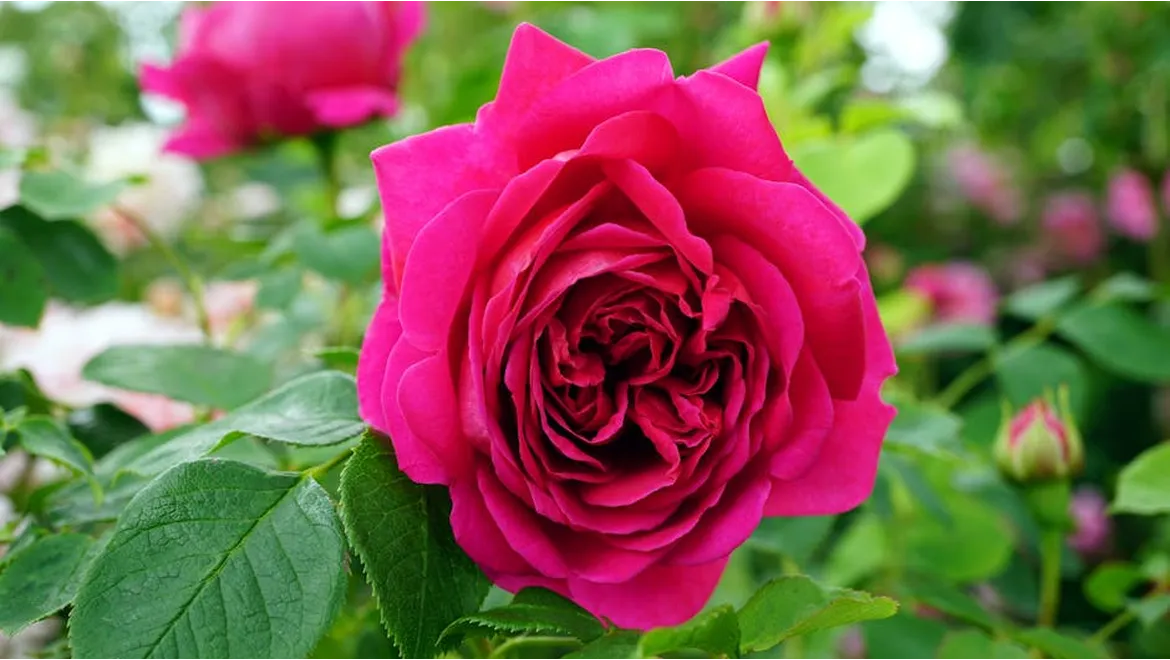Right, let’s talk roses! Specifically, the dreaded diseases that seem to plague them here in the UK. I recently sat down with Abby, a rose enthusiast and seasoned gardener, to pick her brains about battling black spot, powdery mildew, and rust. Her advice was pure gold, so I had to share it.
The Rose Disease Rundown
“First things first,” Abby started, sipping her tea, “you need to know what you’re fighting. Black spot is probably the most common. You’ll see those tell-tale black spots with feathery edges on the leaves, which then turn yellow and drop. Powdery mildew looks like, well, powdery white stuff on the leaves, stems, and even buds. Rust shows up as orange pustules, usually on the underside of the leaves.”
Spot on, Abby! I’ve battled all three at some point. It’s essential to identify them early. A magnifying glass helps if you’re not sure. The sooner you act, the better your chances of saving your roses.
Prevention is Better Than Cure
“Prevention is key,” Abby emphasised. “It’s all about giving your roses the best possible start in life.”
She walked me through her routine, which I’m now determined to implement more religiously:
- Pruning for Airflow: This is crucial! “Think of it like giving your roses a good haircut,” Abby explained. “Open up the centre of the bush to allow air to circulate freely. This helps the leaves dry quickly after rain, which discourages fungal diseases. Aim for an open vase shape.”
- Cleanliness is Next to Godliness: “Remove fallen leaves and any diseased foliage immediately. Don’t compost them! Burn them or put them in your garden waste bin. Leaving diseased leaves lying around is just asking for trouble.”
- Choosing Resistant Varieties: Abby’s a big fan of choosing roses bred for disease resistance. “David Austin roses are beautiful and many are known for their good health,” she said. “Look for varieties described as ‘disease resistant’ or ‘good health’ in the catalogue descriptions. It’s worth paying a bit more for a rose that’s less likely to succumb to disease.”
- Optimising Conditions:“Roses love sunshine and well-drained soil,” Abby reminded me. “Make sure they get at least six hours of sunlight a day, and avoid planting them in a spot that’s constantly damp.”
Organic Treatment Options
Even with the best preventative measures, sometimes disease still strikes. That’s where organic fungicides come in.
“I prefer to use organic options wherever possible,” Abby told me. “There are several effective fungicides available.”
She recommends: (Always follow the manufacturer’s instructions meticulously.)
- Bordeaux Mixture: “A classic, but potent. It’s a copper-based fungicide, so use it sparingly and with care.”
- Sulphur-Based Fungicides: “Less harsh than Bordeaux mixture, but still effective against powdery mildew and black spot.”
- Rose Clear Ultra Gun: “This is an excellent organic systemic fungicide that can be effective against all three main diseases.”
Abby’s top tip? Start treatment early, as soon as you spot the first signs of disease. Repeat applications may be necessary, especially after rain.
Boosting Plant Health
“Healthy plants are more resistant to disease,” Abby explained. “So, feed your roses regularly with a rose-specific fertiliser. A good feed in spring and again in mid-summer will help keep them strong.”
She also recommends: (Remember the key element of these methods is consistency)
- Mulching: “Mulch around your roses with well-rotted manure or compost. This helps to retain moisture in the soil and suppress weeds. Weeds can compete with your roses for nutrients and water.”
- Watering Wisely: “Water deeply but infrequently. Avoid wetting the foliage, as this creates the perfect conditions for fungal diseases. Water at the base of the plant in the early morning.”
So there you have it – Abby’s pearls of wisdom on tackling common rose diseases in the UK. Her advice is proof you can fight these diseases and keep them at bay. By focusing on identification, starting early, promoting plant health and giving plants optimum conditions, you can have beautiful roses that are the envy of all your neighbours.


